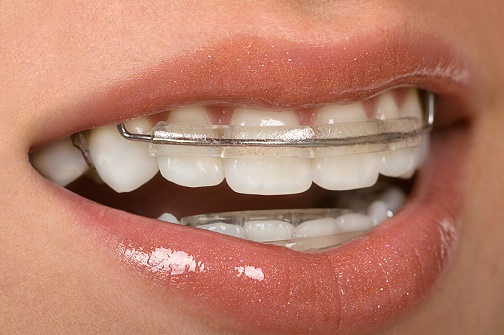Articles
Frequently Asked Questions About Orthodontics

Every year, over 200,000 people throughout the UK choose to have dental braces fitted.
If you are considering orthodontic treatment to fix uneven or unsightly teeth, you will no doubt have plenty of questions you’d like to know the answers to before you reach a decision. Your orthodontist will of course be able to answer these questions when you go for your consultation, but having some answers before then will help you feel all the more prepared.
We’ve put together answers to the most regularly asked questions about orthodontics in order to give you a better understanding of the treatment before your initial assessment.
What is orthodontics?
Orthodontics is a specialist field of dentistry which deals with the prevention and treatment of irregularities of the teeth and jaw. The term comes from two Ancient Greek words: “orthos”, meaning straight or correct, and “dontia”, meaning teeth. Orthodontic dentistry is carried out by a specially trained dentist, known as an orthodontist. They will prescribe orthodontic treatment for a patient suffering from misaligned or uneven teeth.
What are the causes of orthodontic problems?
The majority of orthodontic problems are inherited. Essentially, if either one or both of your parents have experienced irregularities with their teeth, it’s quite likely that you will have them too. Some orthodontic issues can also be as a result of injury or even self-inflicted. Facial trauma and dental disease can both cause orthodontic treatment to be necessary. It’s also thought that excessive thumb-sucking or extended use of a dummy when you are a child can lead to misaligned teeth.
I’m not concerned about how my teeth look; is it still worth me having orthodontic treatment?
Orthodontics isn’t just about improving the appearance of your smile. You may hear both orthodontists and regular dentists using the term “malocclusion”, which essentially means your teeth not being in the correct position when you close your jaw.
Mild malocclusion is not uncommon and generally causes no issues. Severe malocclusion, however, can have an impact on both eating and speaking, as well as making it more likely you will injure your teeth or jaw. Misaligned teeth are also more difficult to keep clean, which can lead to bad breath, gum disease and tooth decay.
How are orthodontic issues usually treated?
By far the most common way that orthodontists offer treatment is through the fitting of dental braces. These are used to progressively readjust the position and angle of your teeth. Braces are available in various styles, from traditional “train track” fixed braces to virtually invisible aligners.
Is there an age limit on when I can receive orthodontic treatment?
Many people incorrectly believe that orthodontic treatment needs to be carried out during your childhood or teenage years once your adult teeth have fully come through. In truth, your teeth can be straightened at any time during your life as long as they are healthy. Obviously, the sooner you have any orthodontic issues treated, the more time you will have to enjoy your straightened smile, and the less likely you are to suffer any related oral health issues.
How long will my orthodontic treatment take?
This varies depending on the nature and severity of your dental issue, as well as the form of treatment you opt for. Some problems can be repaired in as little as six months, whilst others may need up to two years to fully resolve. Your orthodontist will carry out a full assessment of your mouth before any treatment is commenced, and will give you an accurate prognosis based on the treatment options available to you.
For more information about orthodontics, contact us today.


